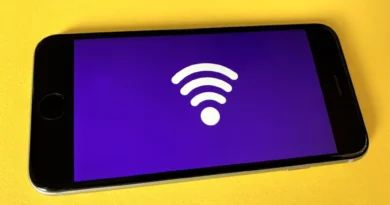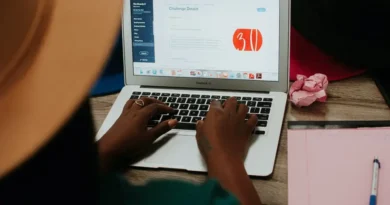How to Protect yourself from Public Wifi?
Public Wifi is a great source for downloading large files and is very convenient to work within the workspace. You can have public wifi in various cafes, libraries, airports, railway stations, and other public places. However, as we access this wifi, are we assured that it’s safe to use and not harmful to and violation of your privacy? Often we process discrete personal information through our laptops and mobile phones, and are connected to public wifi, so to make sure that your privacy is not breached and to assure a safer way to surf the internet while using public wifi, we have listed a few precautionary measures for when you are using public wifi.
Why is Public Wifi not safe?
When you may be accessing your home wifi, you can configure settings in such a way that you have your data on end-to-end encryption and limit what devices can connect to the internet by setting up a strong password with various characters and symbols. However, once you are using public wifi, there may not be enough control for you to have your protocol of safety and security. So, is it a big deal?
Yes! It’s a huge deal. If the network doesn’t have encryption and security, one can easily trace down your login credentials on decrypted sites and can commit identity theft and hack into your session. Every single personal data that you use on your computer from there onwards are up to be very prone to get hijacked. Someone might even end up impersonating you and scam people under your name which if causes a serious cybercrime, you can be very well put behind the bars too!
Not to mention, connecting through public wifi can also lead to viruses and malware in your PC and can cause a lot of damage. Luckily, there are some steps through which you can surf public wifi without any fear of these threats and with full freedom.
Let’s have a look at them, shall we?
How can you protect your Information?
While you may not be able to access and configure the network settings, there are some configurations and protection services that you install and have access to through your PC. There are, however, other ways to connect to the internet or maintain your encryption. Some of them are listed below.
VPN Application
Virtual Private Networks a.k.a VPNs establish a protected network connection that can disguise your online identity and encrypt your internet traffic while using public wifi. The encryption causes third-party apps to face difficulty to track down your device and the encryption happens in real-time.
Mobile Data or Hotspot
If you’re somewhere out and need to access personal information such as banking credentials or any discrete data that isn’t supposed to be leaked by any means, you can consider using your mobile data hotspot as it is encrypted and hard to track down.
Connect to trusted websites
It is very much recommended to use trusted websites that usually have ‘HTTP’ in their addresses, however, this is not a certification of authenticity hence, scammers have started using website addresses with ‘HTTP’. So your data might be safe while accessing the site, but it may be in danger while you’re surfing the site.
Precautionary Measures
While accessing sites on public wifi it is necessary to follow some precautionary measures which can save you from various malicious threats.
- Log in or access personal information to sites that you may know are fully trusted and encrypted and while doing so it is advised to be using a VPN service or Mobile Hotspot.
- Don’t stay permanently signed or save passwords to websites on your device while you are connected to public wifi as the hackers might have a grab on it.
- Do not access personal or financial information when using public wifi.
- Do not use the same passwords on multiple websites as it can provide the scammer to have access to multiple of your accounts.
- Change settings regarding wifi on your computer so it doesn’t automatically connect to public wifi.
- Pay serious attention and read every single warning or disclaimer, especially on websites containing cookies.
Conclusion
Hence, although public wifis are free and convenient, remember everything is a double-edged sword when it comes to accessing different networks or wifis. Make sure to run scans on your PC frequently to avoid viruses and malicious software. Hope this article helped you in understanding how unsafe public wifi is and how you should be using it with great caution.




